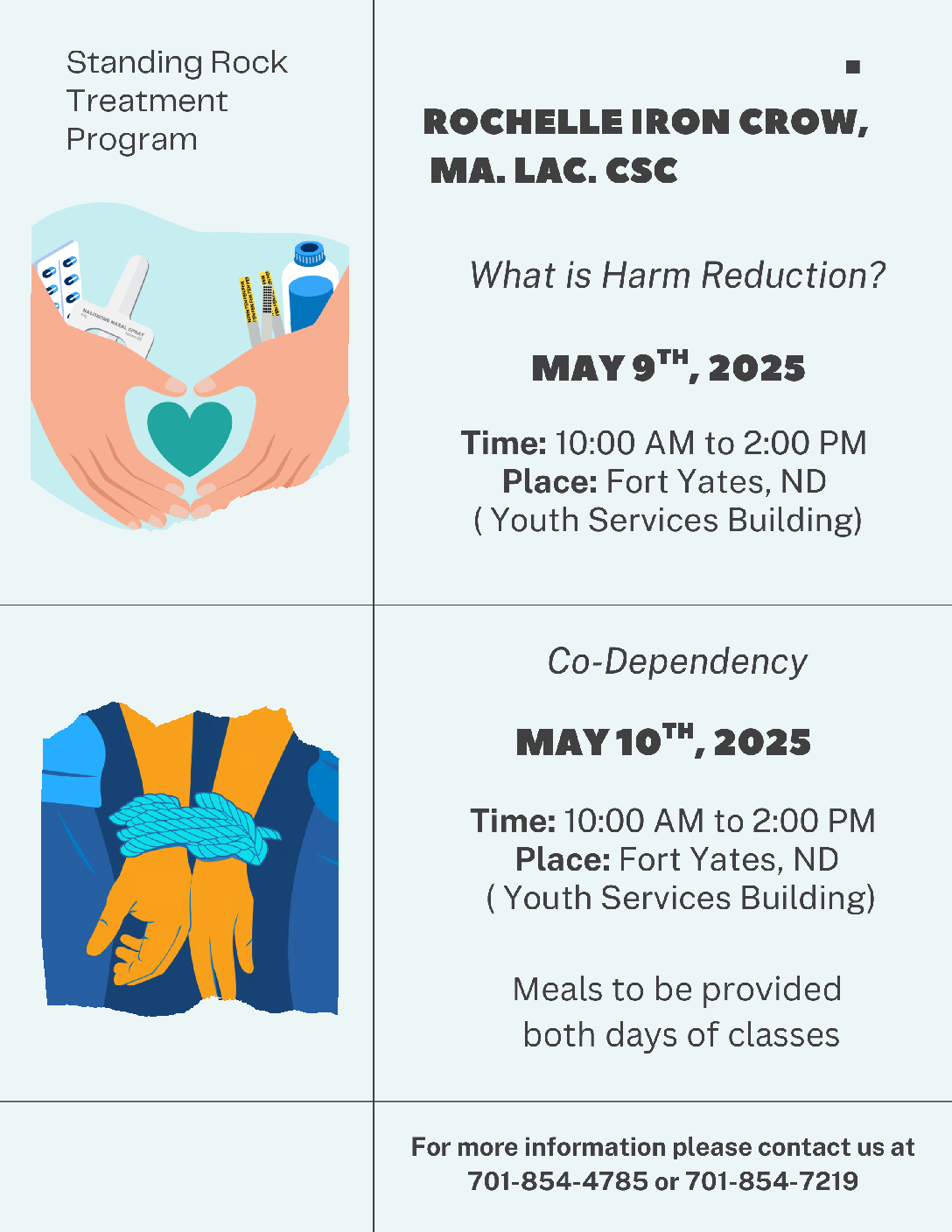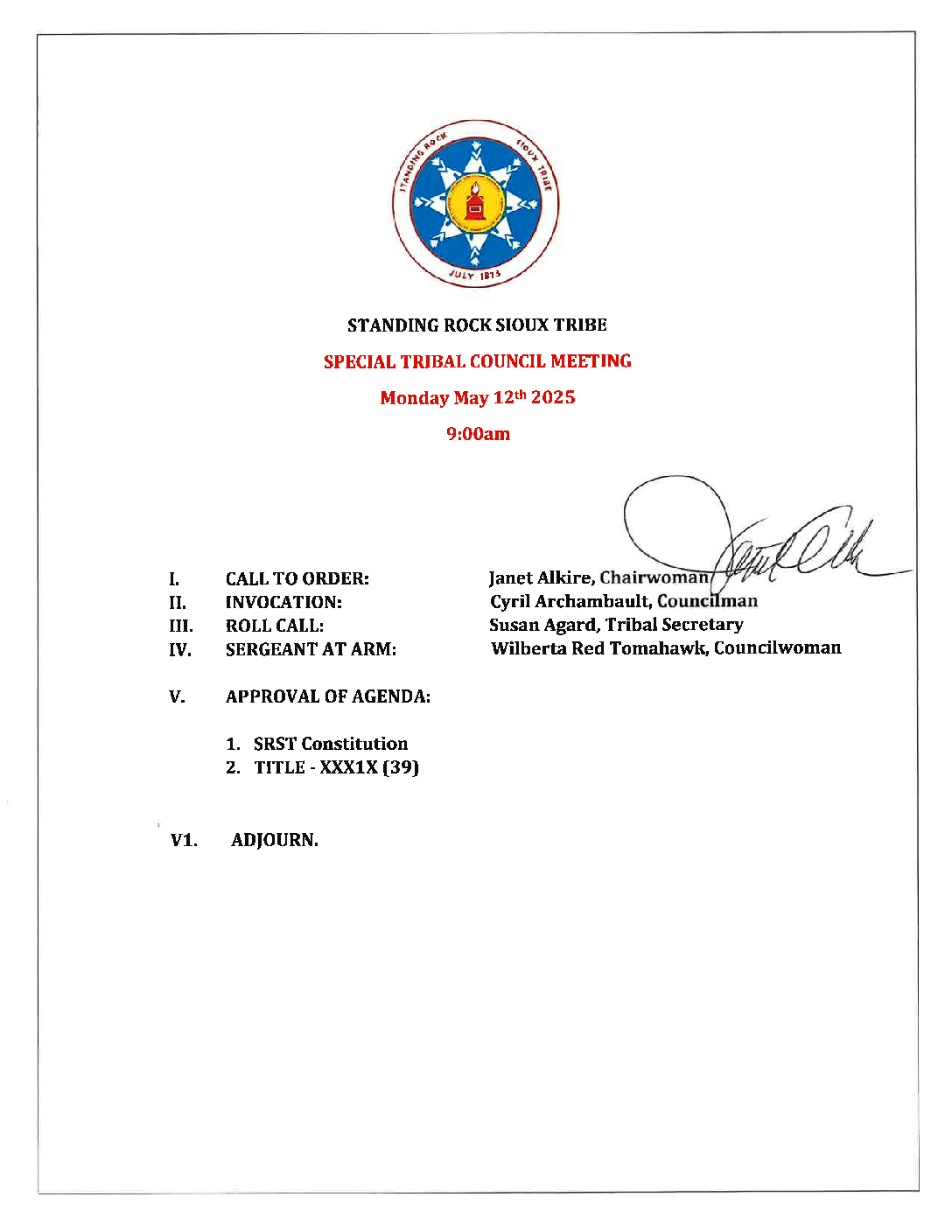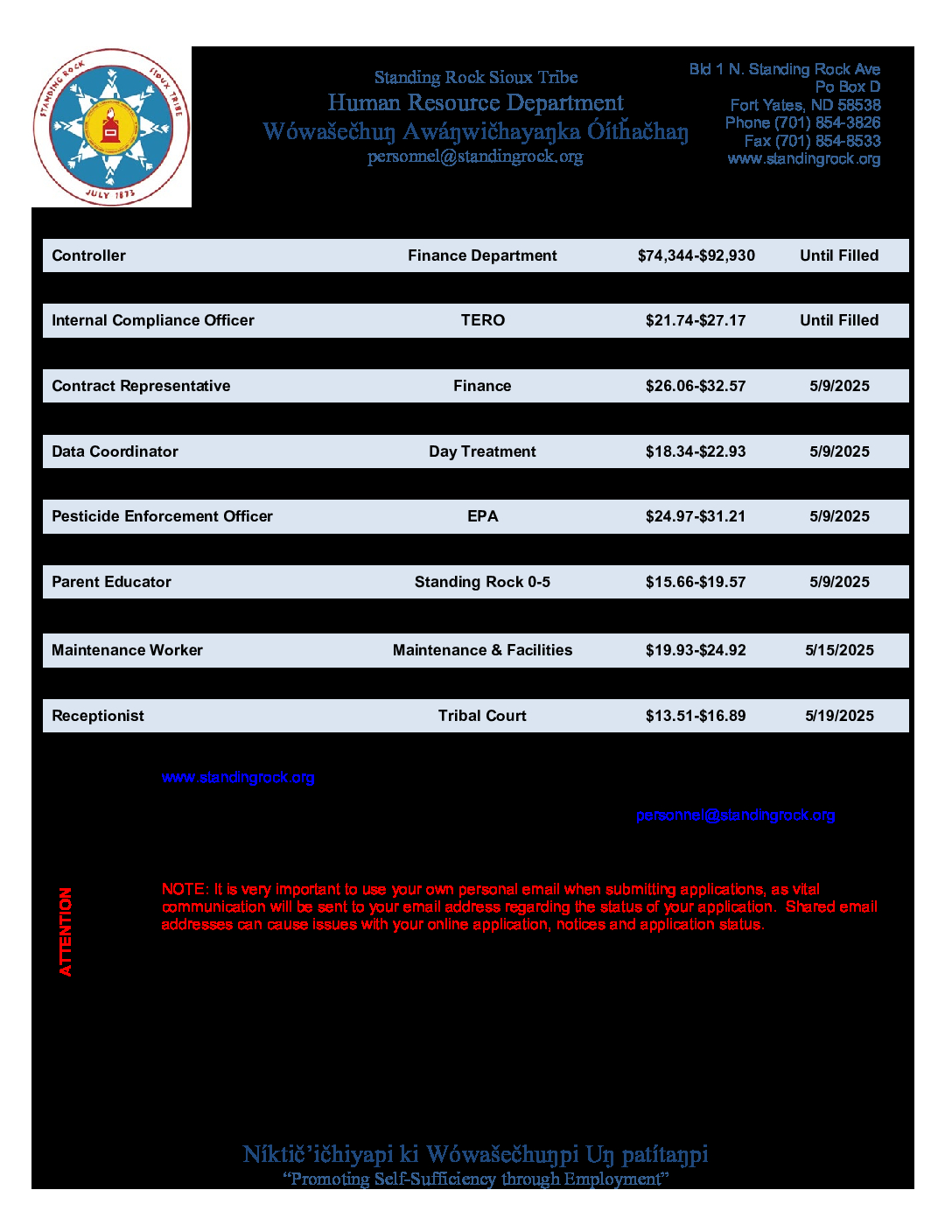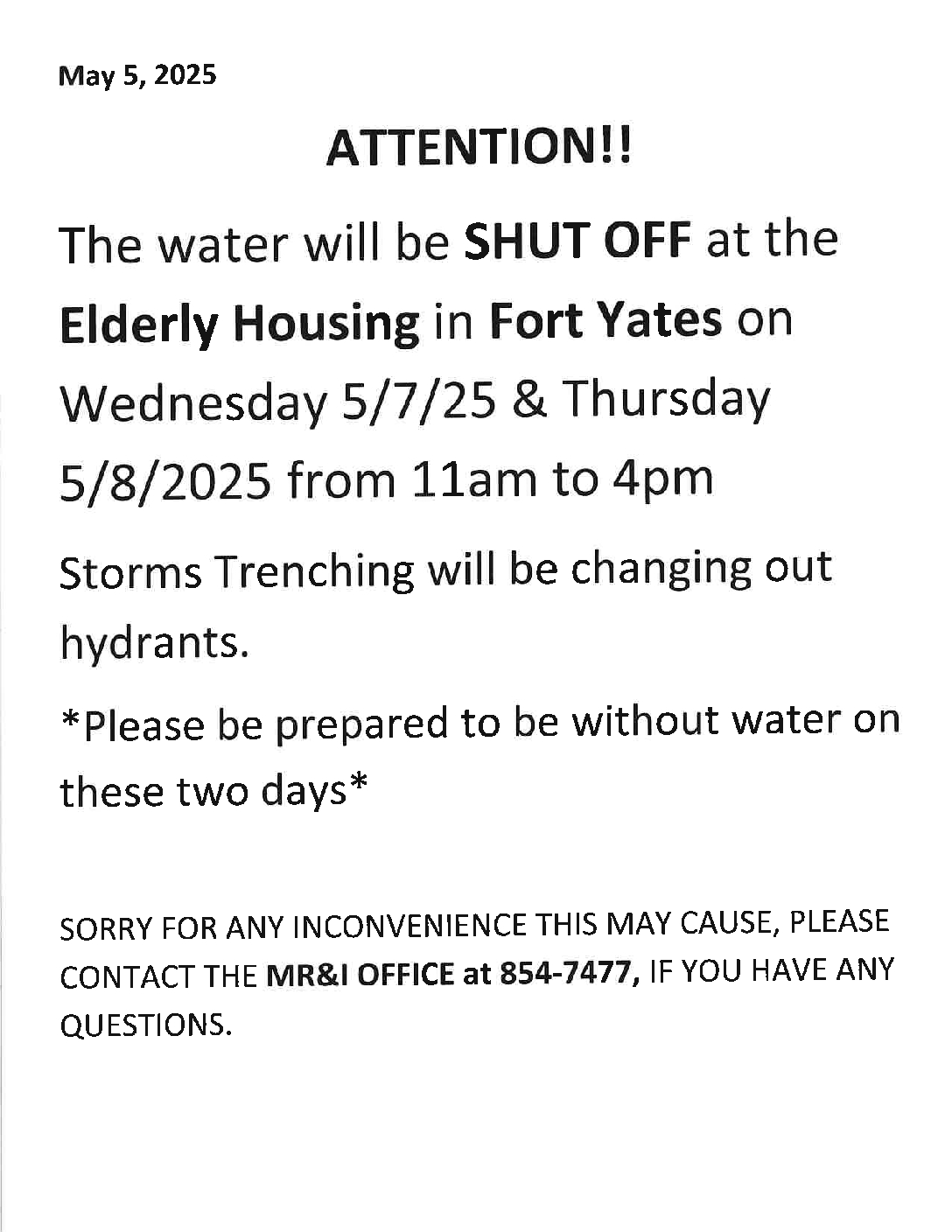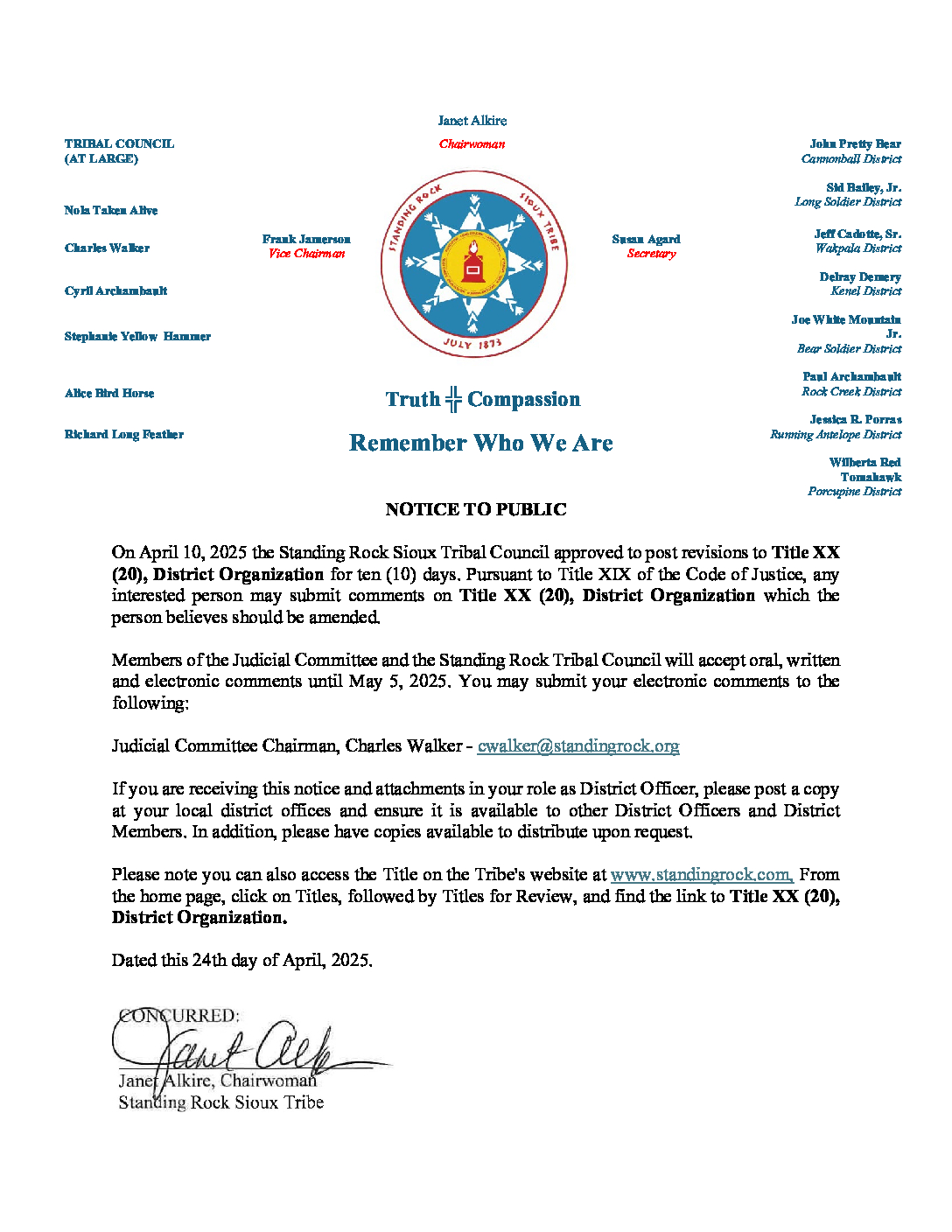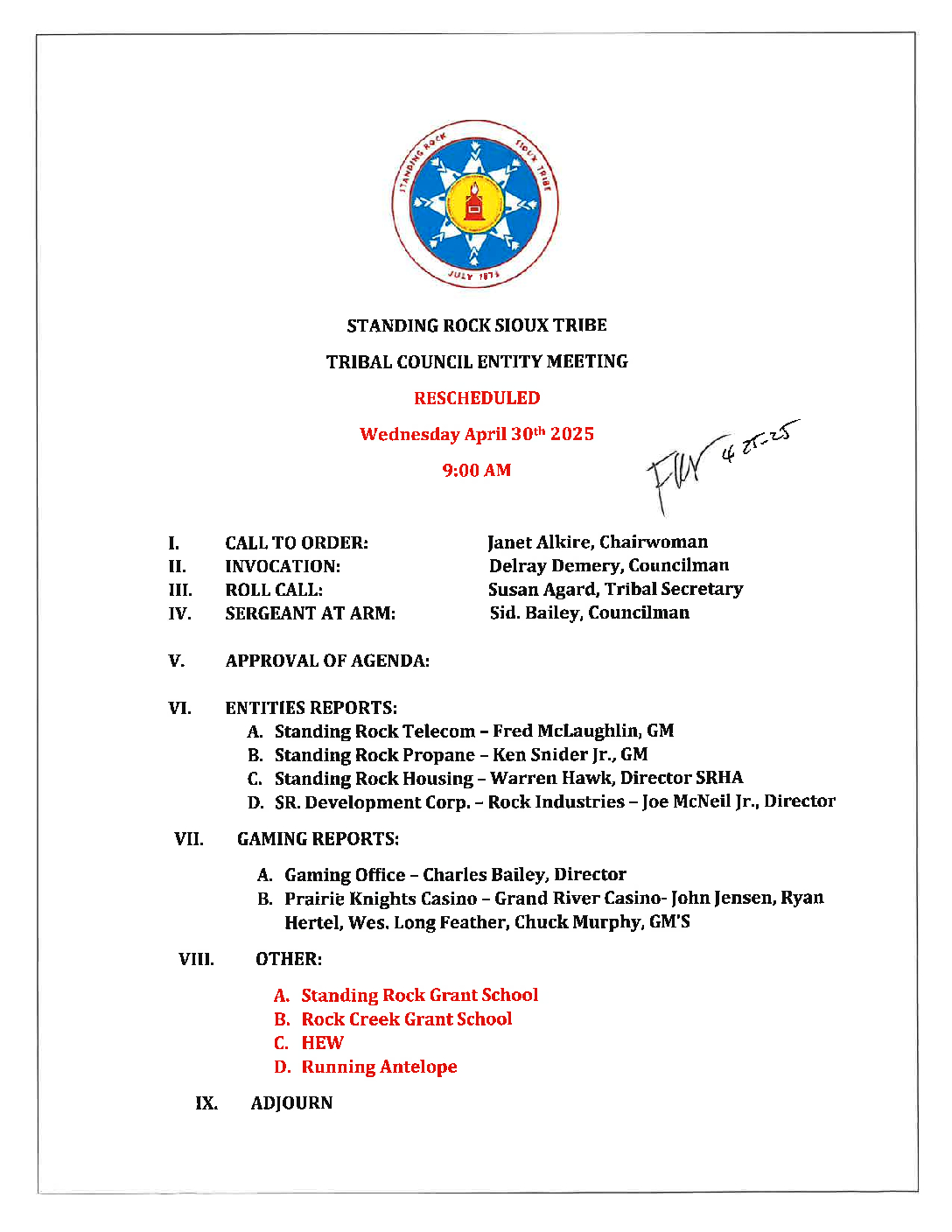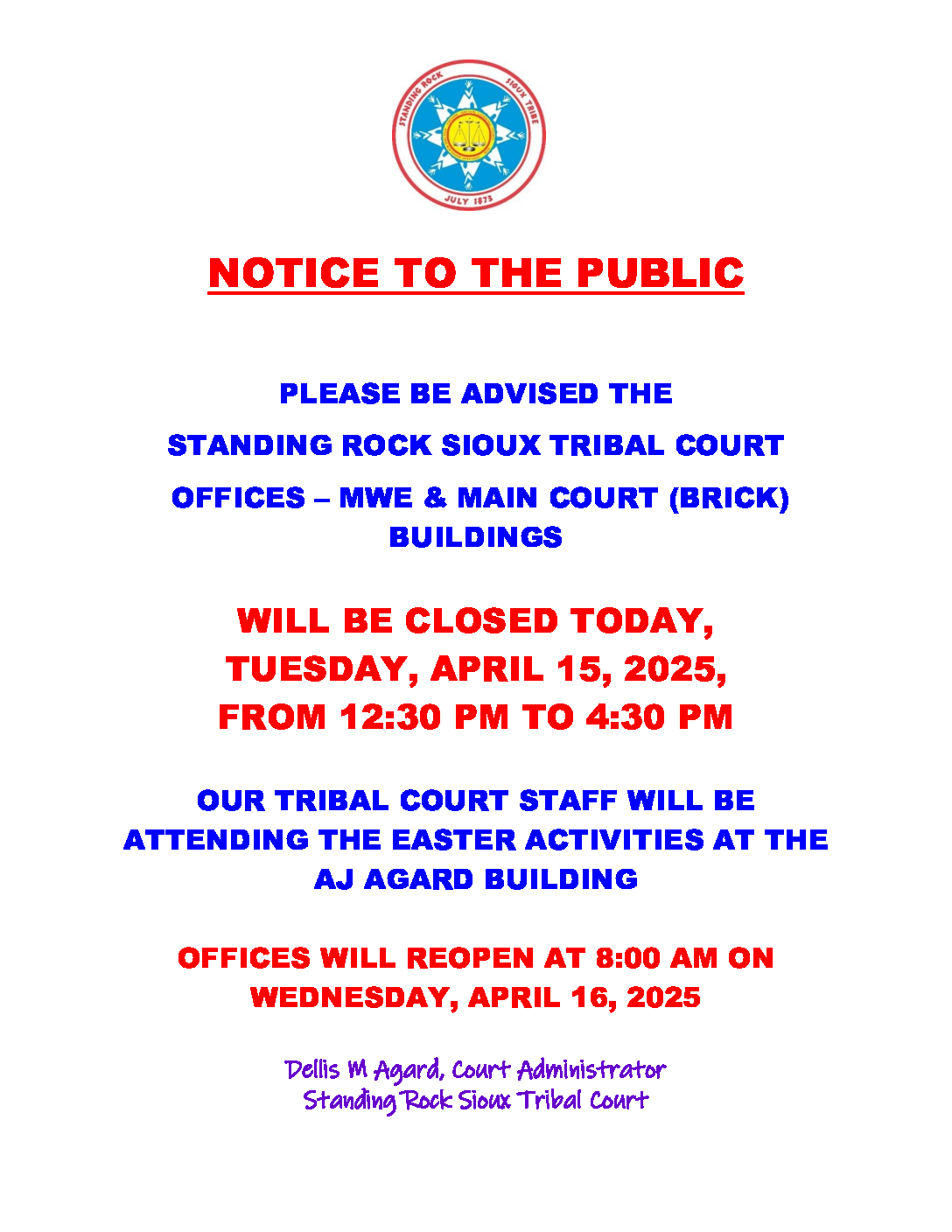5/20-21 Community Meetings about Maher Feedlot’s Environmental Impacts
Hosted in collaboration by the SRST Water Resources and Tribal EPA Departments
Join us for Community Meetings about Maher Feedlot’s Environmental Impacts
May 20th, 7pm – 9pm
Grand River Casino
7903 US-12, Mobridge, SD 57601
May 21st, 7pm – 9pm
Prairie Knights Casino
7932 ND-24, Fort Yates, ND 58538
Meeting Highlights
• Information session with EPA Staff
• Working session on providing effective public comments
• Issues and possible impacts
The Maher feedlot, a large Concentrated Animal Feed Operation (CAFO), has applied for a Clean Water Act discharge permit. The EPA is reviewing the feedlot’s impact on the environment and preparing an Environmental Assessment before making a decision.
View the Permit application here!
For more information, please contact the Standing Rock Sioux Tribe Water
Resources Department
(701) 854-7214
